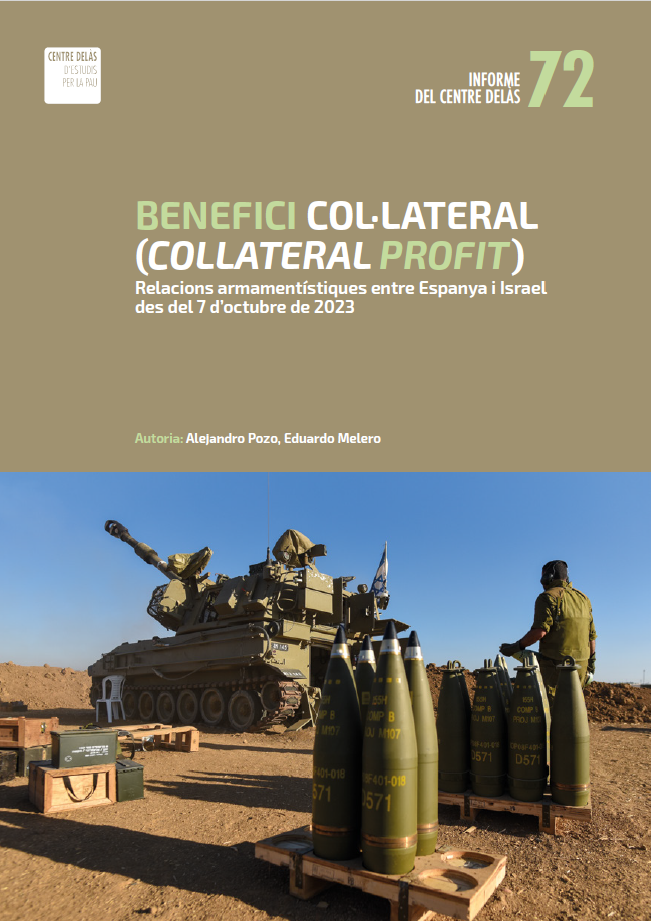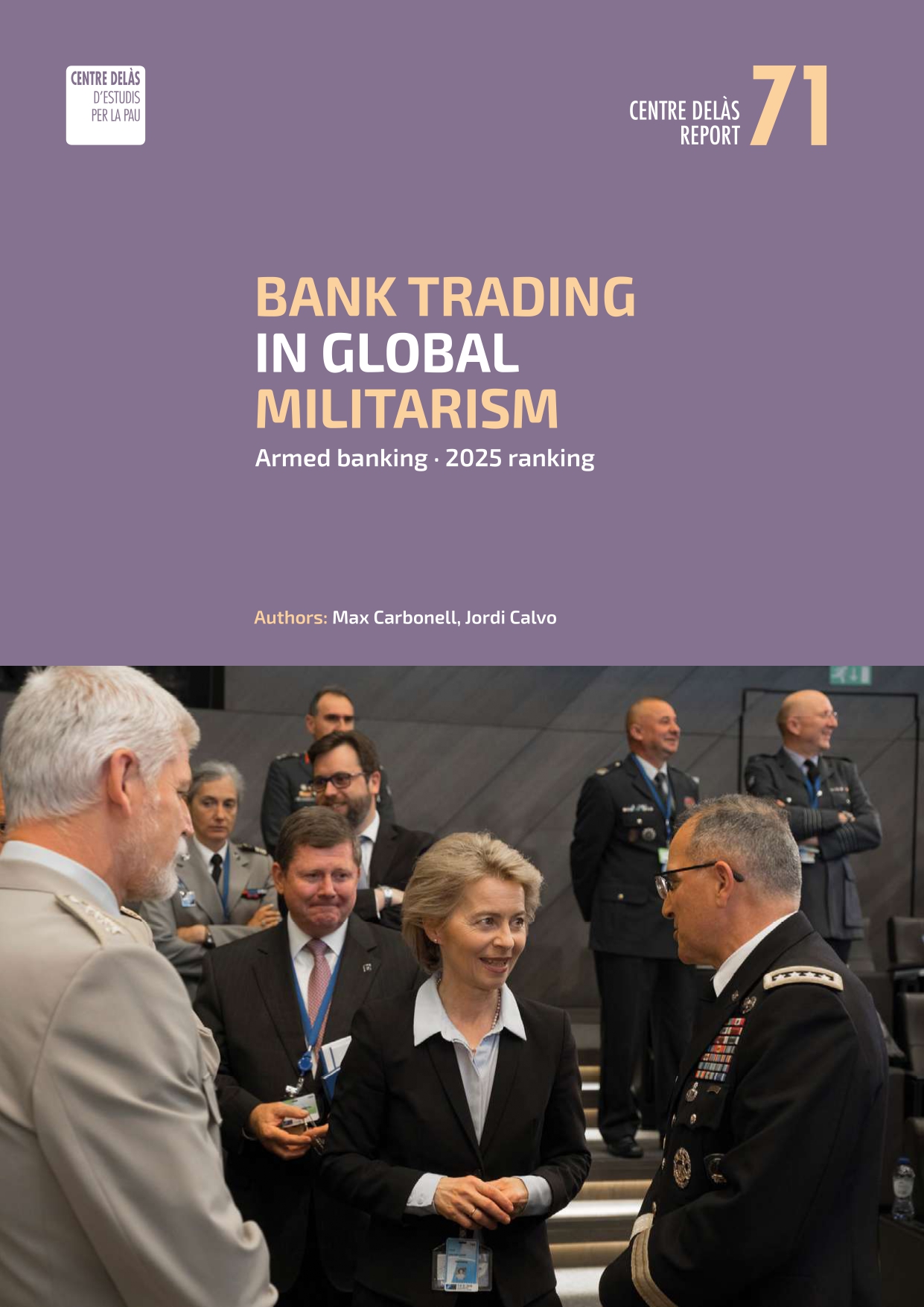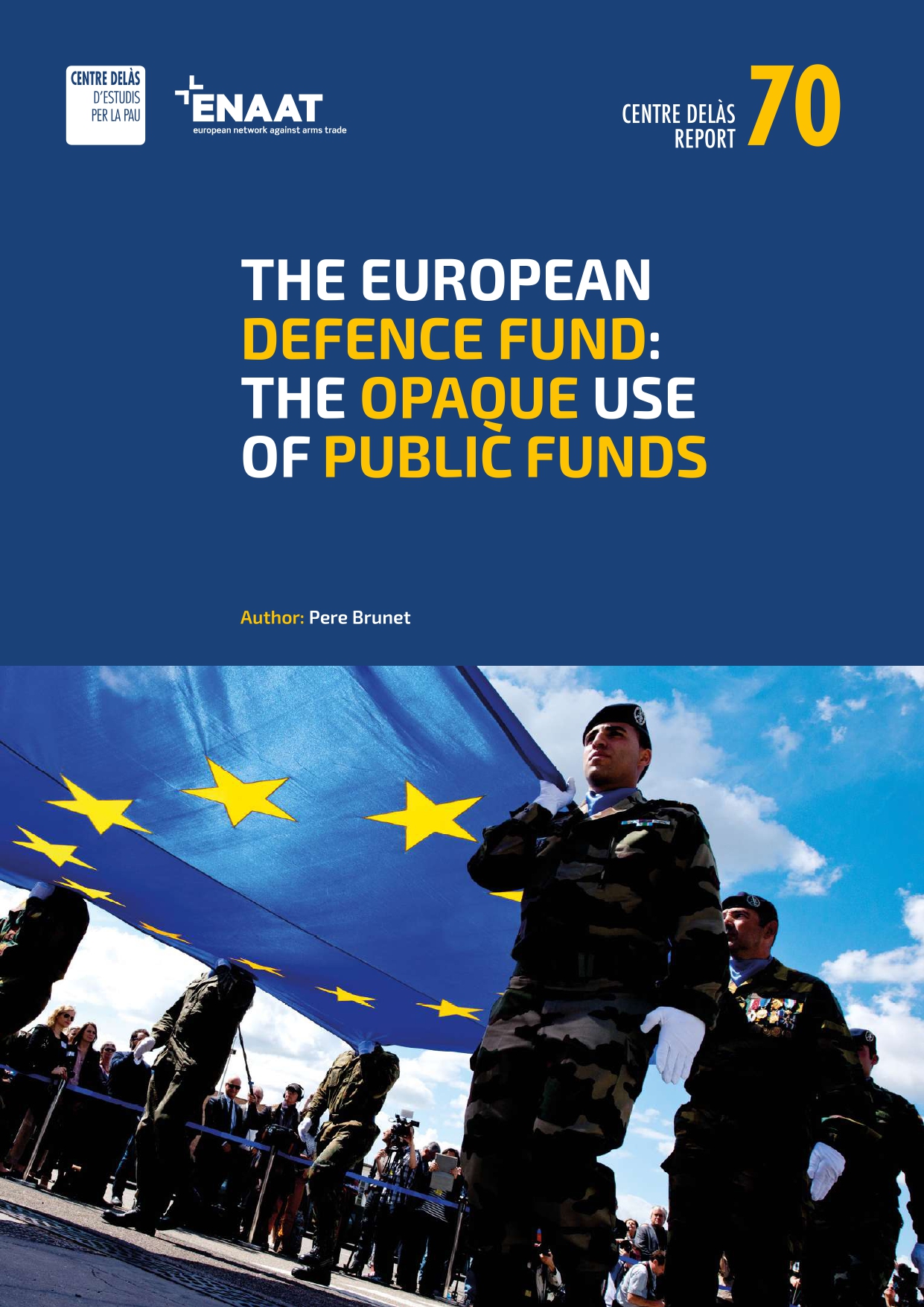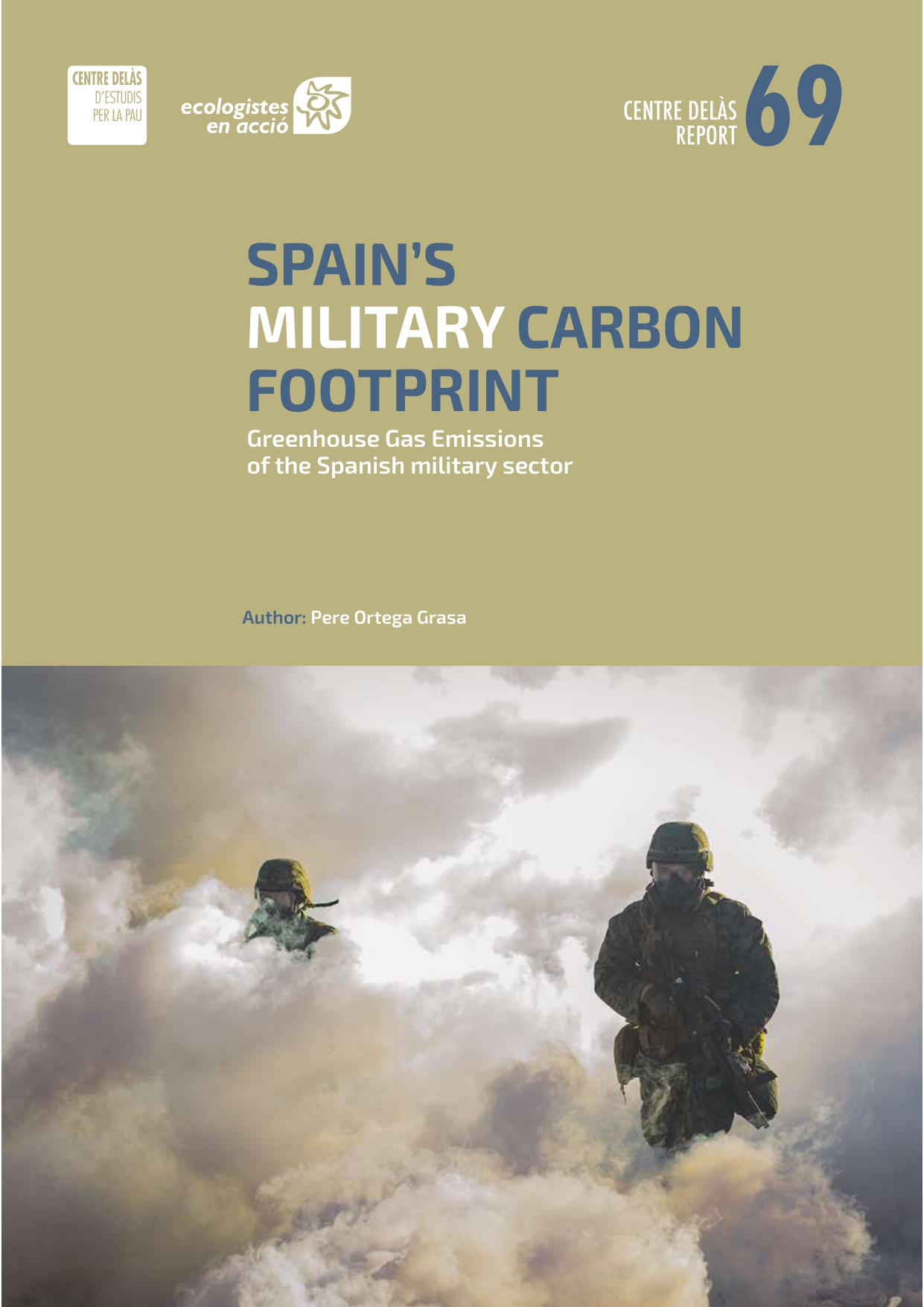Press release – Spanish weapons contribute to the militarization of the Middle East and Asia. New record for Spanish arms exports in 2017
Statement from the Centre Delàs d’Estudis per la Pau on the occasion of the publication of the Spanish Government’s 2017 arms exports report
New record for Spanish arms exports in 2017
Spanish weapons contribute to the militarization of the Middle East and Asia.
As usual, Spain is once again breaking the record for defence material exports. In 2017, these exports reached a historic high of 4,347 million euros, 7.3% more than the previous year. As Pere Ortega, researcher and president of the Delàs Centre for Peace Studies, points out, “the most worrying thing is the large volume of export authorisations, in 2017 the government authorised exports worth 21,085 million euros, 280% more than the previous year”. Taking into account that only 21 per cent of the authorized material was exported in 2017, we can know that most of the weapons have not yet been exported, so we can expect to keep announcing record levels of defence material exports in the coming years.
Spanish arms have been acquired from the Middle East for a value of 452 million euros, 10% of total exports. In addition, the government has authorized exports to this region worth 687 million euros. The most prominent buyers have been Saudi Arabia (270.2 million), Oman (72.8 million), United Arab Emirates (52.9 million), Iraq (33.3 million), Egypt (12.67 million) and Qatar (8.1 million).
Regarding munitions, Spain has exported 90.12 million euros to Saudi Arabia, 33.31 million euros to Iraq, 27.38 million euros to the United Arab Emirates and 7.73 million euros to Qatar. The Spanish government, in the report “Spanish statistics on defence material exports, other material and dual-use products and technologies 2017”, states that licences to export ammunition to Saudi Arabia have been “accompanied by end-use certificates, with strict clauses on non re-exportation and use outside its territory”. Tica Font, researcher at the Delàs Centre for Peace Studies, states that “it must be that in the past the government did not require such certifications, since Spanish ammunition such as the C90-CR rocket launcher acquired by Saudi Arabia or the Alhambra grenades acquired by Bahrain, have been identified in Yemeni territory; or if it required such certifications it has never verified the veracity of use of such exports”.
These exports can be considered illegal if we abide by Spain’s and Europe’s own legislation on the arms trade. Let us remember that Saudi Arabia, together with the United Arab Emirates, Bahrain, Egypt and Jordan, is part of the coalition that is fighting in Yemen in favour of the government forces of al-Hadi, and is participating by supporting one side in the war in Yemen.
On the other hand, Spanish exports to Asia should be highlighted, as weapons worth 389 million euros have been exported there, 9% of the total. These include Malaysia, which has acquired military equipment worth 170.6 million euros, Kazakhstan for 54.6 million, Thailand for 52.8 million, Bangladesh for 30.2 million, Pakistan 27.6 million, South Korea 16.9 million, Indonesia 14.9 million and the Philippines 12 million.
The economic and geopolitical conflict axis has shifted to Asia, North Korea’s missile launch and its nuclear programme or China’s strategic-military actions have led to an increase in the perception of threats in the region. For some years now, China’s defence budget has been increasing dramatically, the government is modernising its military equipment and arsenal, and China’s military policy is causing a kind of arms race in neighbouring countries. In fact, in recent years India, Japan and the Philippines have substantially increased their defence budgets and their purchases of modern weapons. It is clear that the Spanish military industry, with the support of the Spanish Government, is trying to take advantage of this situation, even if it means increasing tension and the potential outcome of an armed conflict.
Finally, this year the Spanish Government’s active policy of promoting exports of defence material from Spanish industry is being corroborated, a policy that has been called “policy of internationalisation of the defence industry”, which is evident in the low refusal of exports. In 2017 only four applications for exports were refused, one to China (acoustic classification systems valued at 540,000 euros) on the basis of criterion 1 of the Common Position, another to Myanmar (20 sporting guns for the Armed Forces) on the basis of an EU embargo and two export licences to Israel (ten rifle barrels and 17 battle tank firing directions valued at 1.9 million euros) on the basis of criterion 4, regional situation, of the Common Position.
It is likely that all these exported weapons and those bought in previous years by several countries in the Middle East are being used in the bombing of Kurdish, Syrian, Iraqi or Yemeni cities, just as there is a possibility that the use of these weapons is what has led to the mass movement of citizens to other locations, including the current humanitarian refugee crisis. According to Jordi Calvo, researcher and coordinator of the Delàs Centre, “this is why controlling arms exports is not simply a legal challenge, it is not enough to check to what extent the law regulating these exports has been complied with or not. The main challenge is political and humanitarian. That means that it is in no way acceptable for Spanish weapons to be used as a tool of foreign policy and even more so if this means provoking violence and irreversible damage to the lives of millions of people“.
Centro Delàs de Estudios por la Paz





